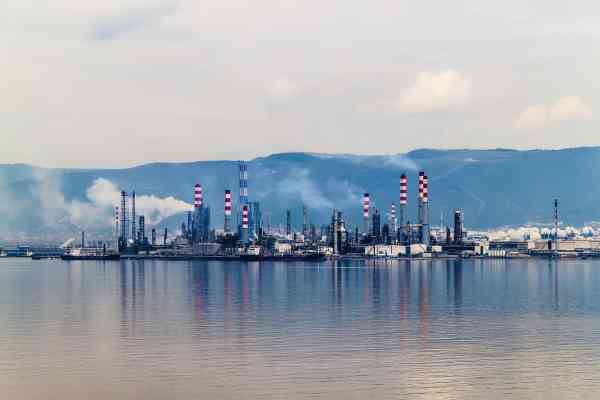December 5th, 2019 | 13:14 CET
Ballard Power, NEL ASA, Plug Power - and where real money is made today
The change in mobility is one of the most challenging issues of our time. German carmakers are currently focusing on the launch of battery cars in order to meet the increasingly stringent exhaust emission requirements of the European Union. From the user's point of view, electric mobility based on batteries and the idea of several million charging points at the roadsides and parking lots are reminiscent of the days of horse-drawn carriages. But this comparison is not accurate, because horses have not caused environmental damage in other parts of the world. In Germany there is an established network of over 14,000 gas stations and it is no secret that hydrogen takes about the same time to fill up as combustion engines. Why not the hydrogen car now?
time to read: 3 minutes
|
Author:
Mario Hose
ISIN:
NO0010081235 , US72919P2020 , CA0585861085
Table of contents:

"[...] Recovery rates of more than 90% rare earths are another piece of the puzzle on the way to the economic viability of our project. [...]" Craig Taylor, CEO, Defense Metals
Author
Mario Hose
Born and raised in Hannover, Lower Saxony follows social and economic developments around the globe. As a passionate entrepreneur and columnist he explains and compares the most diverse business models as well as markets for interested stock traders.
Tag cloud
Shares cloud
Demand determines supply
The hydrogen industry consists of different market participants. On the one hand, manufacturers of plants are needed with which hydrogen can be produced. These plant or machine manufacturers need a planning-safe market, i.e. if the trend is towards mobility based on hydrogen, then there will be demand for such plants and the developers and manufacturers will find buyers for their equipment. However, hydrogen alone is not enough to drive a car, because fuel cells are needed to convert the energy of hydrogen into electricity for the electric drive motors. Everything sounds quite simple.
Political and strategic omissions
Even the refueling process is as simple and fast as the users are used to from conventional petrol and diesel fuels - as are the engine performance and range. Theoretically, an energy revolution in mobility would work silently. Manufacturers would only have to follow the price/performance level of vehicles with internal combustion engines and set up a network of hydrogen stations.
However, political and entrepreneurial failures on the part of car manufacturers have led to costly bets being placed on the wrong horse for the time being. Under the pretence of climate protection, lithium and cobalt production in developing countries is sustainably damaging the environment in order to produce batteries for climate protection in the rich industrial nations. Sounds bizarre and absurd.
In the end the buyer decides
It remains to be seen how long the story of the climate-friendly battery car will be spread in elaborate marketing campaigns. It remains to be hoped that buyers will continue to strike and simply drive their vehicles longer until an attractive range of fuel cell vehicles is available. Anyone wishing to position themselves as an investor in the hydrogen sector among suppliers must currently accept a relatively high valuation.
High investment demand
Ballard Power is valued at EUR 5.95 on the stock exchange at EUR 1.4 billion. In the first nine months of this year, Ballard Power recorded a slight decline in sales from USD 68.1 million to USD 64.4 million, with losses increasing from USD 15.9 million to USD 28.8 million. At a share price of EUR 0.73, NEL ASA is valued at around EUR 890 million. In the first nine months, the company increased sales from EUR 36.4 million in the previous year to EUR 39.4 million, but at the same time increased its loss from EUR 13.4 million to EUR 17.7 million.
Long staying power is necessary
At a share price of EUR 2.93, the company Power Plug is valued at around EUR 750 million. In the first nine months of this year, sales rose from USD 114.8 million in the previous year to USD 132.0 million. The bottom line was that the loss in the same period of the previous year increased from USD 61.3 million to USD 73.8 million. Assuming that mobility will only move in the direction of hydrogen on a large scale in the next five to ten years, it may also be worthwhile at present to look around the established energy sector with bargains.
Traditional entry month December
The month of December has traditionally been a popular time window for international investors in Canada, as profit-taking and the realisation of tax losses often lead to falling prices at the end of the year, which then rise again in the new year. Last week, a growing Canadian oil company published its figures for the first nine months of the year and increased sales from CAD 3.1 million to CAD 13.8 million compared to the previous year.
Last year, the company recorded a slight loss of CAD 0.1 million, but in the same period this year it generated a profit of CAD 2.3 million. The company was founded in 2017 as part of a realignment with new management and has been on the road to success ever since.
Low valuation, high potential
With a profitability of over 16.6%, the company is one of the most profitable energy producers. With a share price of EUR 0.085, the company is valued at around EUR 20 million on the stock exchange. In November 2019, the German GBC AG published a research report on the company and a BUY rating with a price target of 0.21 EUR .
'Profitable oil producer with significant growth potential' is the title of the study and the company's name is Saturn Oil & Gas Inc.
Conflict of interest
Pursuant to §85 of the German Securities Trading Act (WpHG), we point out that Apaton Finance GmbH as well as partners, authors or employees of Apaton Finance GmbH (hereinafter referred to as "Relevant Persons") may in the future hold shares or other financial instruments of the mentioned companies or will bet on rising or falling on rising or falling prices and therefore a conflict of interest may arise in the future. conflict of interest may arise in the future. The Relevant Persons reserve the shares or other financial instruments of the company at any time (hereinafter referred to as the company at any time (hereinafter referred to as a "Transaction"). "Transaction"). Transactions may under certain circumstances influence the respective price of the shares or other financial instruments of the of the Company.
Furthermore, Apaton Finance GmbH reserves the right to enter into future relationships with the company or with third parties in relation to reports on the company. with regard to reports on the company, which are published within the scope of the Apaton Finance GmbH as well as in the social media, on partner sites or in e-mails, on partner sites or in e-mails. The above references to existing conflicts of interest apply apply to all types and forms of publication used by Apaton Finance GmbH uses for publications on companies.
Risk notice
Apaton Finance GmbH offers editors, agencies and companies the opportunity to publish commentaries, interviews, summaries, news and etc. on news.financial. These contents serve information for readers and does not constitute a call to action or recommendations, neither explicitly nor implicitly. implicitly, they are to be understood as an assurance of possible price be understood. The contents do not replace individual professional investment advice and do not constitute an offer to sell the share(s) offer to sell the share(s) or other financial instrument(s) in question, nor is it an nor an invitation to buy or sell such.
The content is expressly not a financial analysis, but rather financial analysis, but rather journalistic or advertising texts. Readers or users who make investment decisions or carry out transactions on the basis decisions or transactions on the basis of the information provided here act completely at their own risk. There is no contractual relationship between between Apaton Finance GmbH and its readers or the users of its offers. users of its offers, as our information only refers to the company and not to the company, but not to the investment decision of the reader or user. or user.
The acquisition of financial instruments entails high risks that can lead to the total loss of the capital invested. The information published by Apaton Finance GmbH and its authors are based on careful research on careful research, nevertheless no liability for financial losses financial losses or a content guarantee for topicality, correctness, adequacy and completeness of the contents offered here. contents offered here. Please also note our Terms of use.




